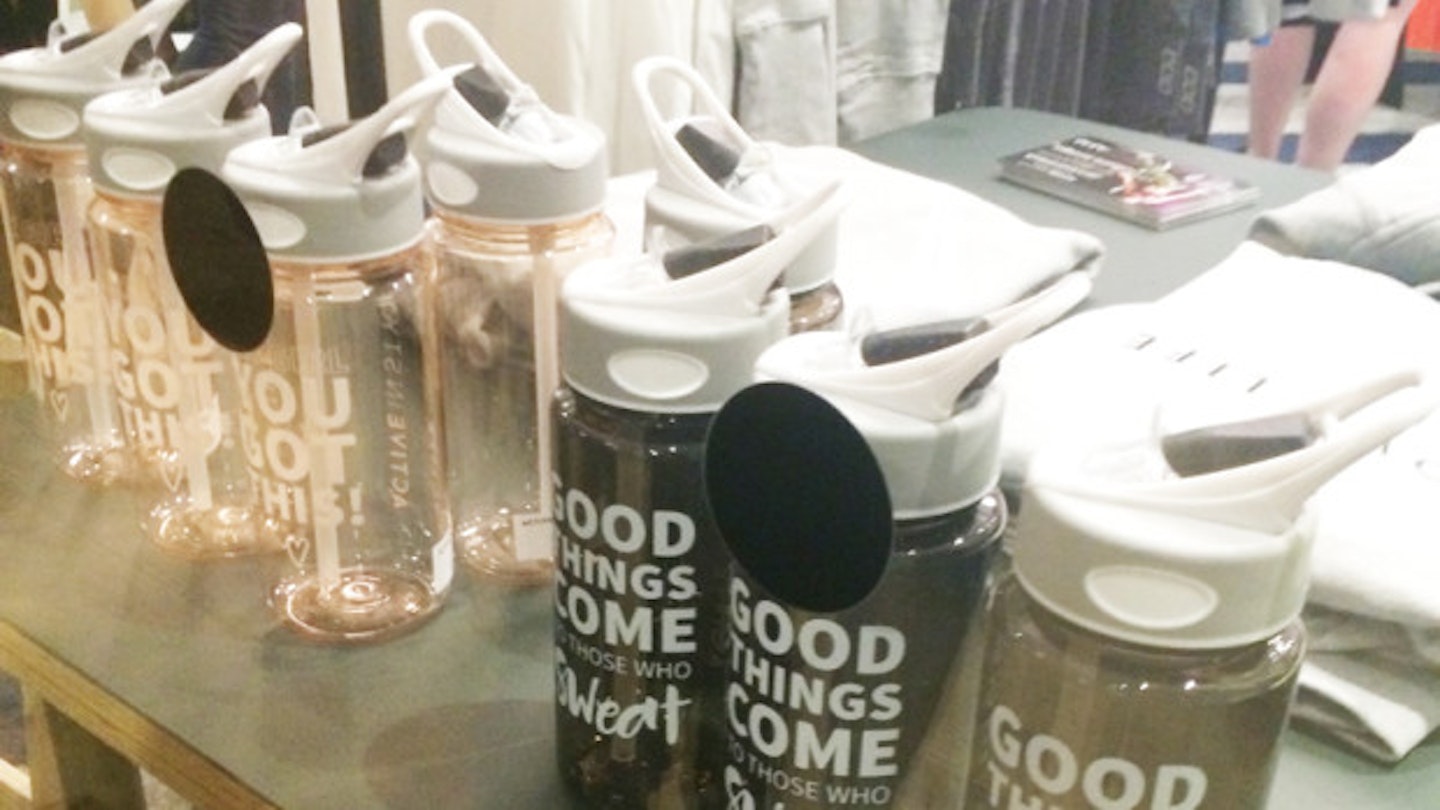‘I’m so glad that sugar is finally being demonised,’ Renée Elliott founder of Planet Organic is announcing to an excited crowd at a conference centre in east London. ‘Next should be white flour, which I hate just as much.’
As Renée talks, a guy chewing on a piece of beef jerky looks on wide-eyed. A few seats behind, a girl in a ‘To do yoga you need to be curious not a contortionist’ T-shirt claps. Welcome to Britain’s first Business of Wellness summit, a conference for start-ups, investors and eat clean figureheads to discuss the issues facing the growing wellness industry.
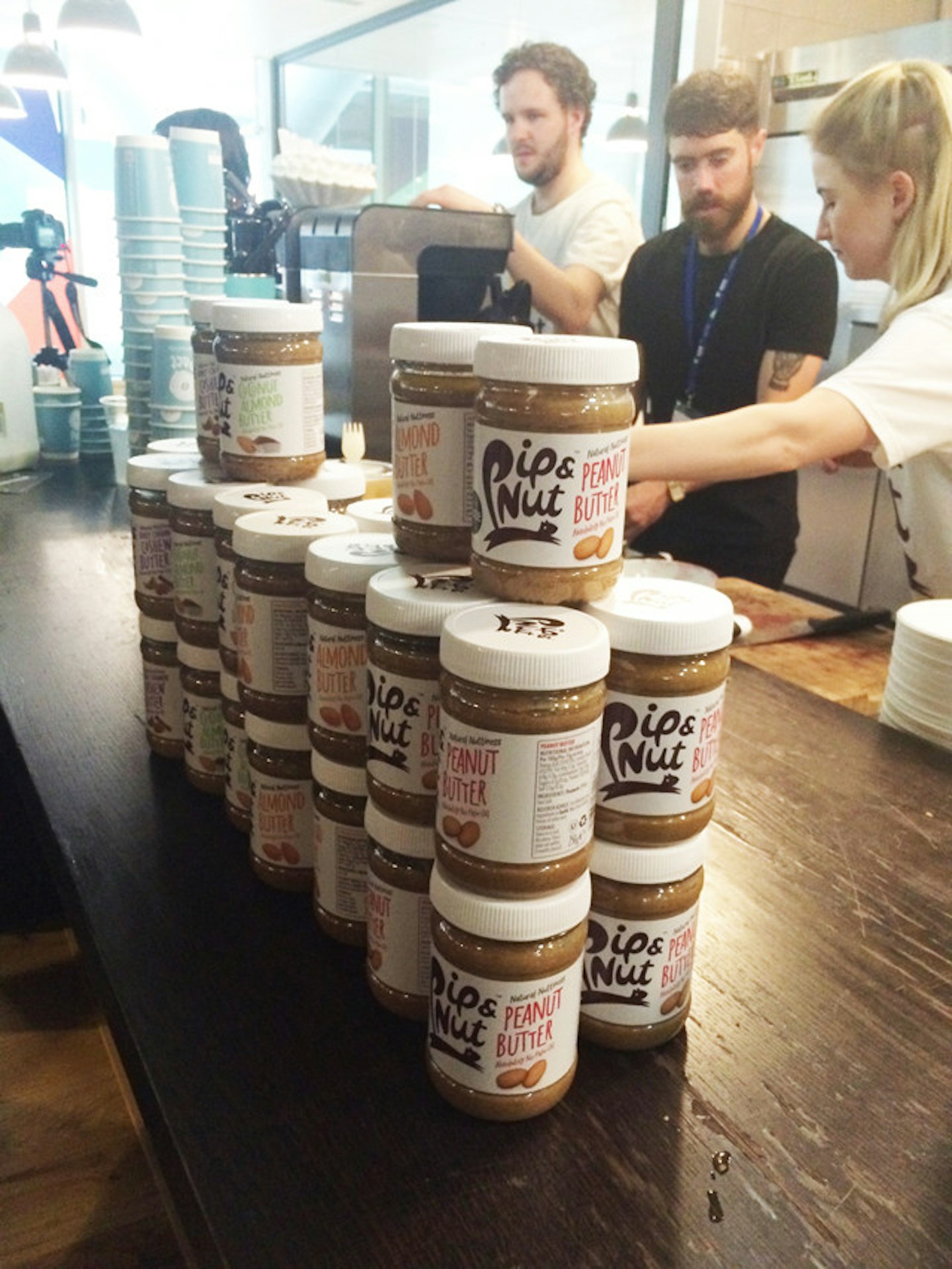
Wellness may be a punchline at the end of jokes about millennials, but it’s also grown into a $3.4trillion industry, spanning fitness, food, travel and mindfulness. Our obsession with reaching optimum health has gone so far that recently a pet food brand launched a clean eating plan for dogs. Even those of us who wouldn’t call ourselves ‘clean-eaters’ sometimes switch cows’ milk for soya and nights out for gyms which are included with our ClassPass membership. ‘For a stressed generation wellness is the answer we’ve been looking for,’ Lauren Armes, one of the founders of the BOW Summit explains. ‘Eating healthier, using mindfulness apps, exercising more: it’s a really marketable concept that says “there’s a solution”’.
But is wellness really the ‘solution’ to stress? Or, is it just a marketable ideology which can be neatly packaged up and sold back to us? I decided to meet the business owners and marketers driving the ever-increasing number of niche ‘must-have’ health products and boutique fitness classes – and find out just how closely we should be listening to them.
While most of us imagine the clean-eating crowd as glossy blogger types who’ve ‘got the glow’ and the designer wardrobe to match, the BOW attendees (who’d all paid £155 for tickets) look more like the folk you’d see at a student fair. In fact, the room is packed with thirty-something, primarily female, start-up founders enjoying £6 juices and peanut butter on toast. Talking to attendees, it was clear many had quit high-powered, high-stress city jobs to turn passions into careers. For example, one 33-year-old mum told me that she’d quit her recruiter job to move to Nottinghamshire and start a business designing ‘cool thermal leggings’. Another told me about her Paleo cupcake business.
Parts of the event are so peak-wellness it feels like a parody sketch. The entrepreneurs are here for a series of talks with names like ‘What’s next for athleisure?.’ They’re treated to goodie bags filled with microwavable cauliflower rice, charcoal water and raw cookies. (To be fair, they are delicious.) It all feels very Nathan Barley circa 2016, but while it’s easy to laugh at the ridiculousness of the wellness industry, it’s exciting to see a room so full of female entrepreneurs. Plus, the impact of the wellness industry as a whole is a serious matter. Even within the community, there are big concerns about the impact their messaging is having.
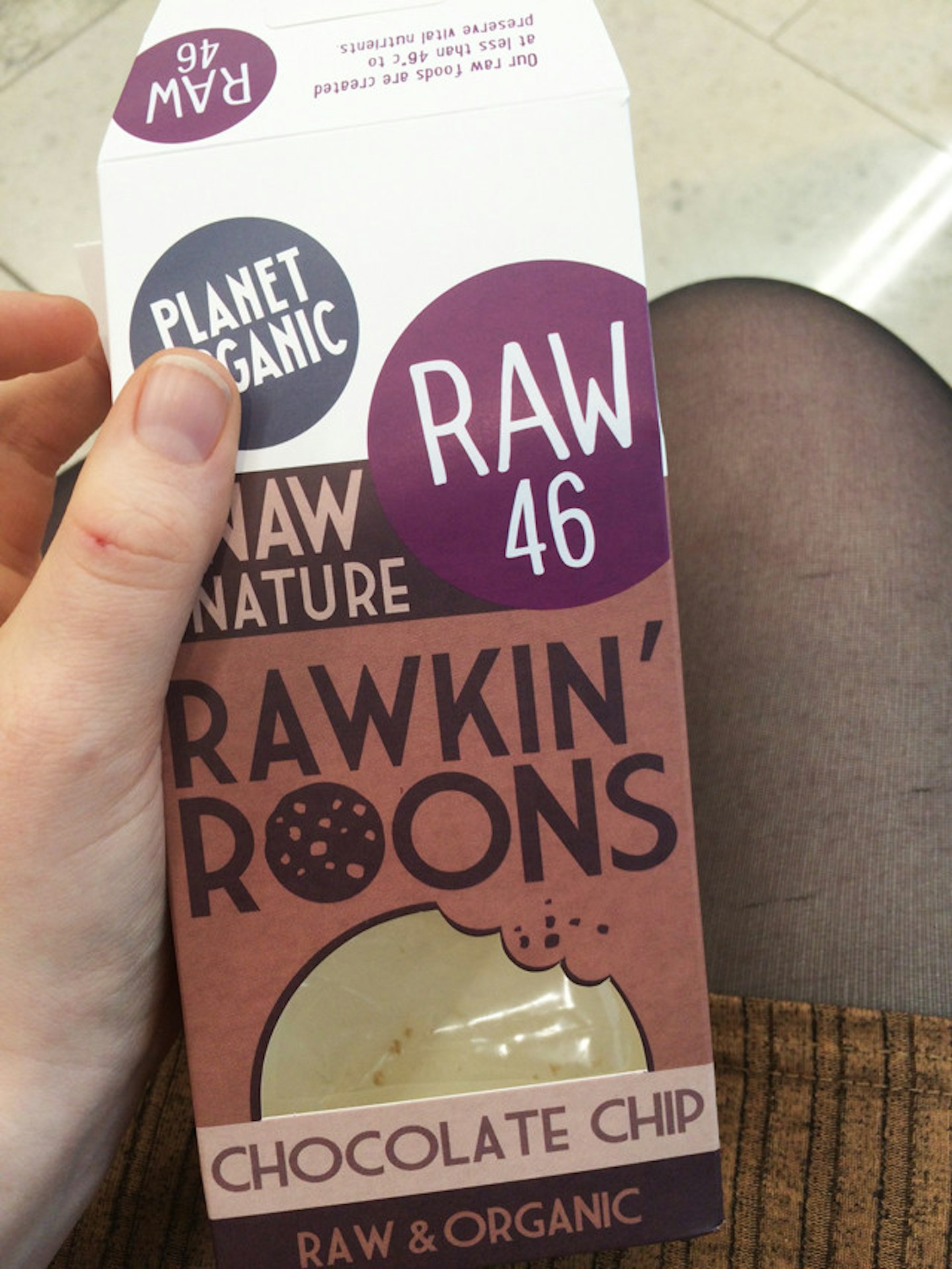
Many of the talks at the BOW Summit involve worries about brands using ‘fillers’, used to bulk out products labelled ‘skinny’ or ‘free-from’; which actually aren’t that good for you. Plus, even entrepreneurs with good intentions, don’t necessarily know the science behind making something healthy. When I ask the founder of the Paleo cupcake business if her cupcakes are healthier than others, she describes them as ‘cleaner’, explaining: ‘With more and more people developing intolerances due to traditional Western diets high in white starches and sugar, our digestive systems and blood sugar and immunity are all out of whack so eating cleaner foods can help reduce inflammation.’ This logic is more than a bit shaky. Recently multiple articles and books, such as The Gluten Lie, have exposed and explored the problematic rise of wellness.
Plus, despite claims from one investor at the summit that you can eat a raw food diet for ‘just £50 per week’; the wellness market is an aspirational one. In fact, Gentry Long from ‘country club inspired’ gym Equinox told the room that his business (whose membership costs £180 per month) targets older people who can afford it as well as millennials who ‘aspire’ to be members. In fact, over lunch (a salad bowl) one entrepreneur laughed to me when relaying how she got sucked into the wellness world after trying out a £20 spinning class which she couldn’t really afford as a ‘a one-off’. She got hooked and ended up going daily, buying better sportswear and juicing. ‘I just bought a cold-pressed juicer that cost more than my washing machine,’ she explains.
This becomes especially concerning when you consider that in order for wellness businesses to make money they need to keep us spending regularly: going to more and more classes, finding new health concerns to worry about. And, thanks to technology that’s easy: we can monitor our physical exertion throughout entire classes, or even keep track of everything from our mood to energy levels and sleep 24/7. This, to me, seems like a sure-fire route to turning yourself into a perfectly functioning robot rather than making yourself happier. BOW founder Armes argues that people with obsessive tendencies will always seek out ways to fulfill them, wellness being just one of these. However, she acknowledges this does mean business need to be careful about how they portray the benefits of living ‘well’.
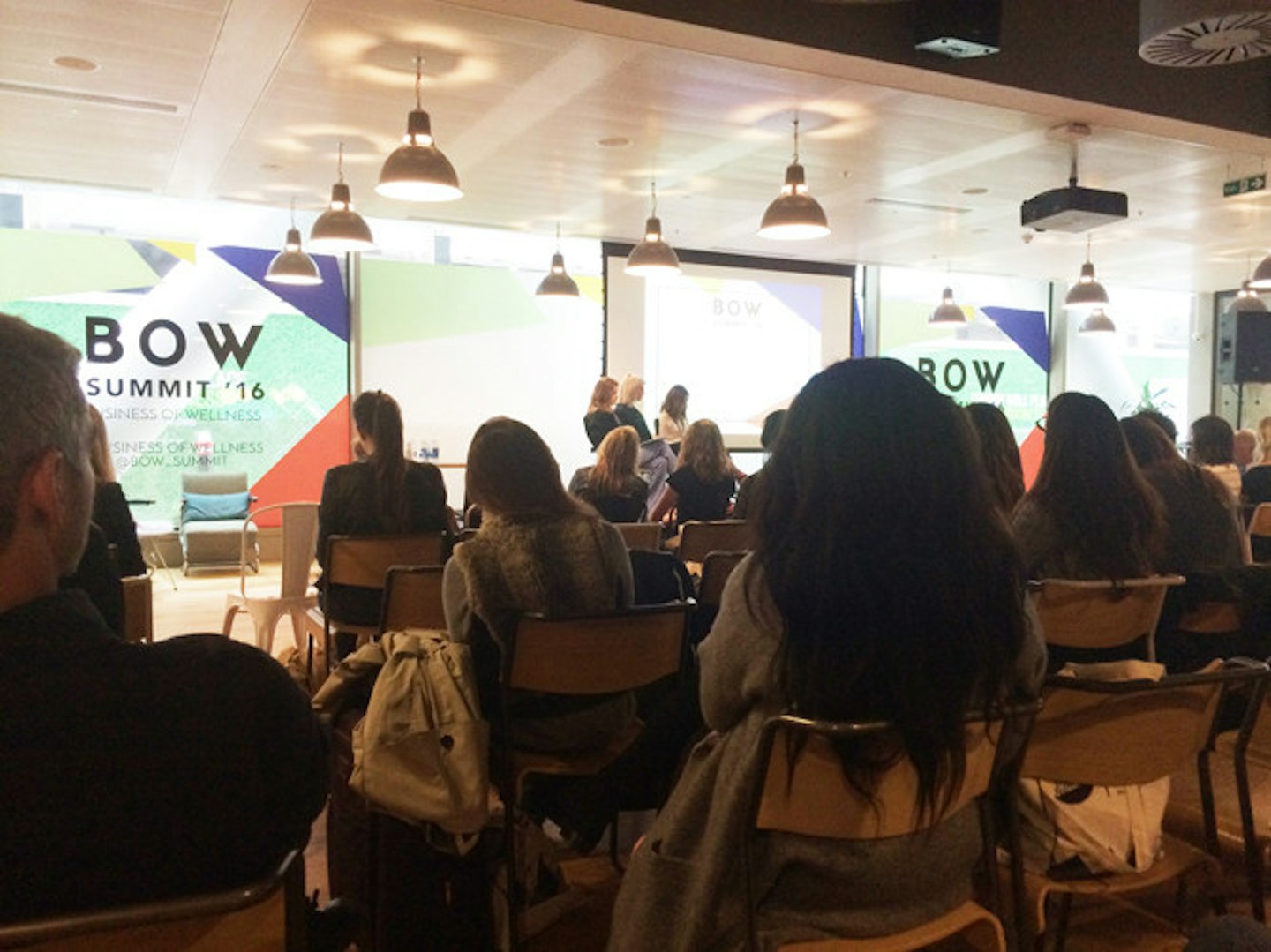
‘In some ways it’s become a bit of an ideology,’ she says. ‘It attaches itself via morality and becomes a culture that says ‘if you’re healthy it means you’re a good person’ and if you make bad choices you’re a bad person. I think that’s where the danger lies. Marketers latch onto the idea that if you don’t eat the right food or exercise you’re letting yourself down or society down.’
Kerry Higgins knows this first hand. When I catch up with the 21-year-old marketer manning the stand for healthy food company Pollen & Grace, she reveals that she used to have an eating disorder, which she feels was perpetuated by the wellness industry.
‘When I was at high school, I basically starved myself because I saw food as bad and the enemy’ she says. ‘Then I saw all these wellness bloggers saying this food is amazing, you can eat it and you won’t get fat. I just went crazy: I went gluten-free, dairy-free, sugar-free and vegan. My list of ‘can’t eats’ got so long it was a new way of sectioning off my fear foods. It was so unhealthy. I wouldn’t eat anything if I hadn’t made it and I’d never eat out. Wellness is a really great way to hide an eating disorder.’
She says that working in an environment with people at Pollen & Grace who she perceived as ‘healthy’ but also ate pizza and drank wine was ‘mind-blowing’ and changed her way of thinking about food. That’s not to say the industry isn’t a difficult one to work in. ‘There’s a lot of pressure on how you look,’ she says. ‘I go to fitness events and everyone’s all abs and leggings, but on the food side of it we just eat all day.’
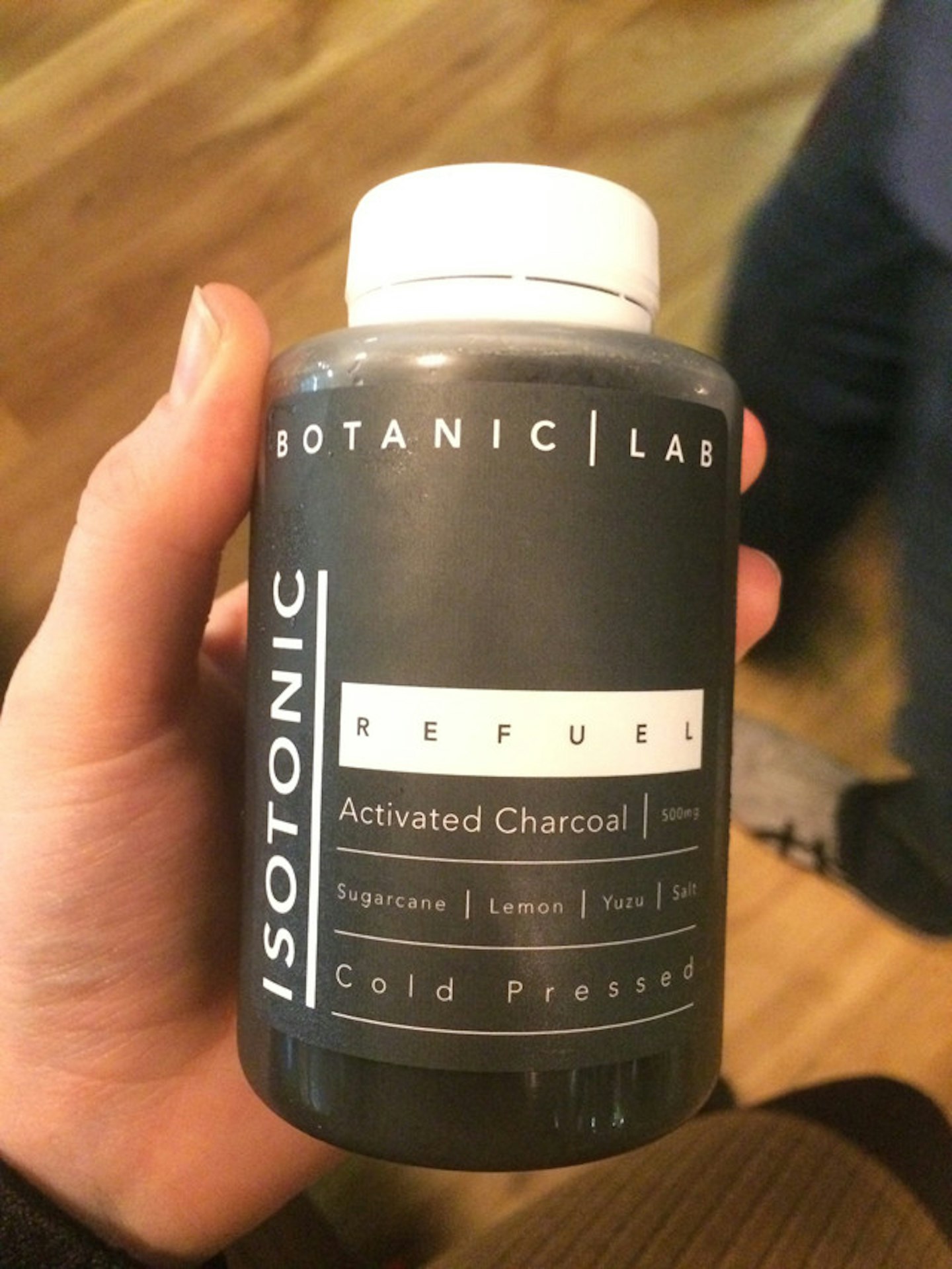
It’s positive that our generation is more health conscious than those before us, and also that this shift in thinking has provided an industry that young female entrepreneurs are flourishing in. But I do believe that the monetisation of wellness undoubtedly poses risks.
Ultimately, I find it hard to believe that an industry that relies on people feeling like they need to be healthy isn’t going encourage obsessions; plug unnecessary expensive products and claim things are healthier than they are. Plus, my personal worry is that when you collate all the different parts of the wellness world together you get a picture of a future where people will track every single part of their behaviour in order to reconstruct themselves as perfectly functioning humans (and employees) - and will be encouraged to do so not just by wellness brands but also by the businesses they work for.
That being said, it would be wrong to claim the whole wellness industry is the spawn of acai-fuelled satan. Having more exercise and food options available is exciting; so long as they’re being sold to us as options and not life-fixers. The BOW Summit made it more obvious to me than ever that if we’re calling wellness an industry then it needs to be better regulated, especially as big investors – in it for the cash, not passion - start to pay it attention.
Like this? You might also be interested in:
Cocaine Cut With Coconut Is Now A Thing In LA: Is This Peak Wellness?
Booze All Week Nutribullet Through The Week: Meet Generation Offset
Follow Kate on Twitter @katelloud
This article originally appeared on The Debrief.
